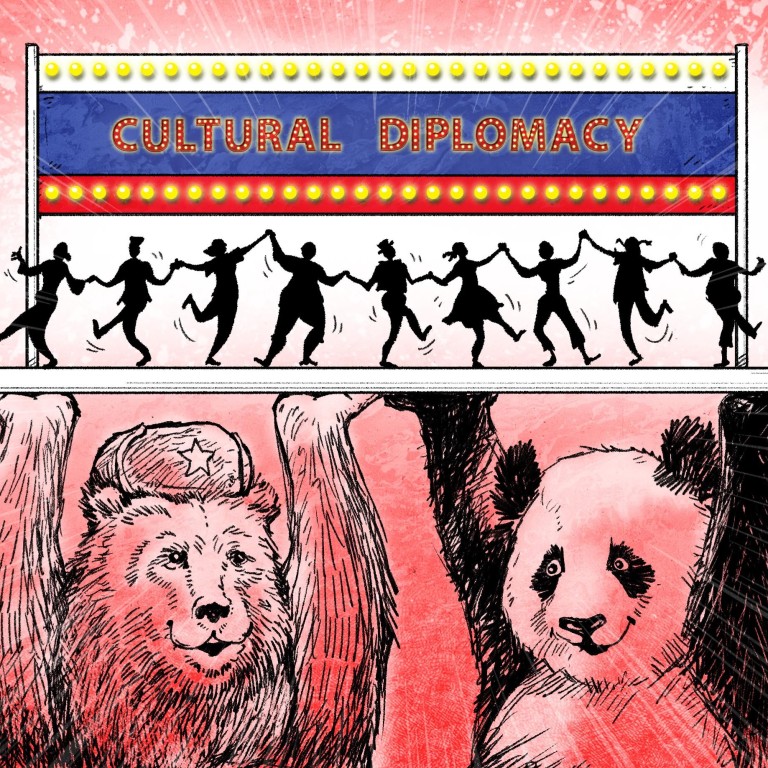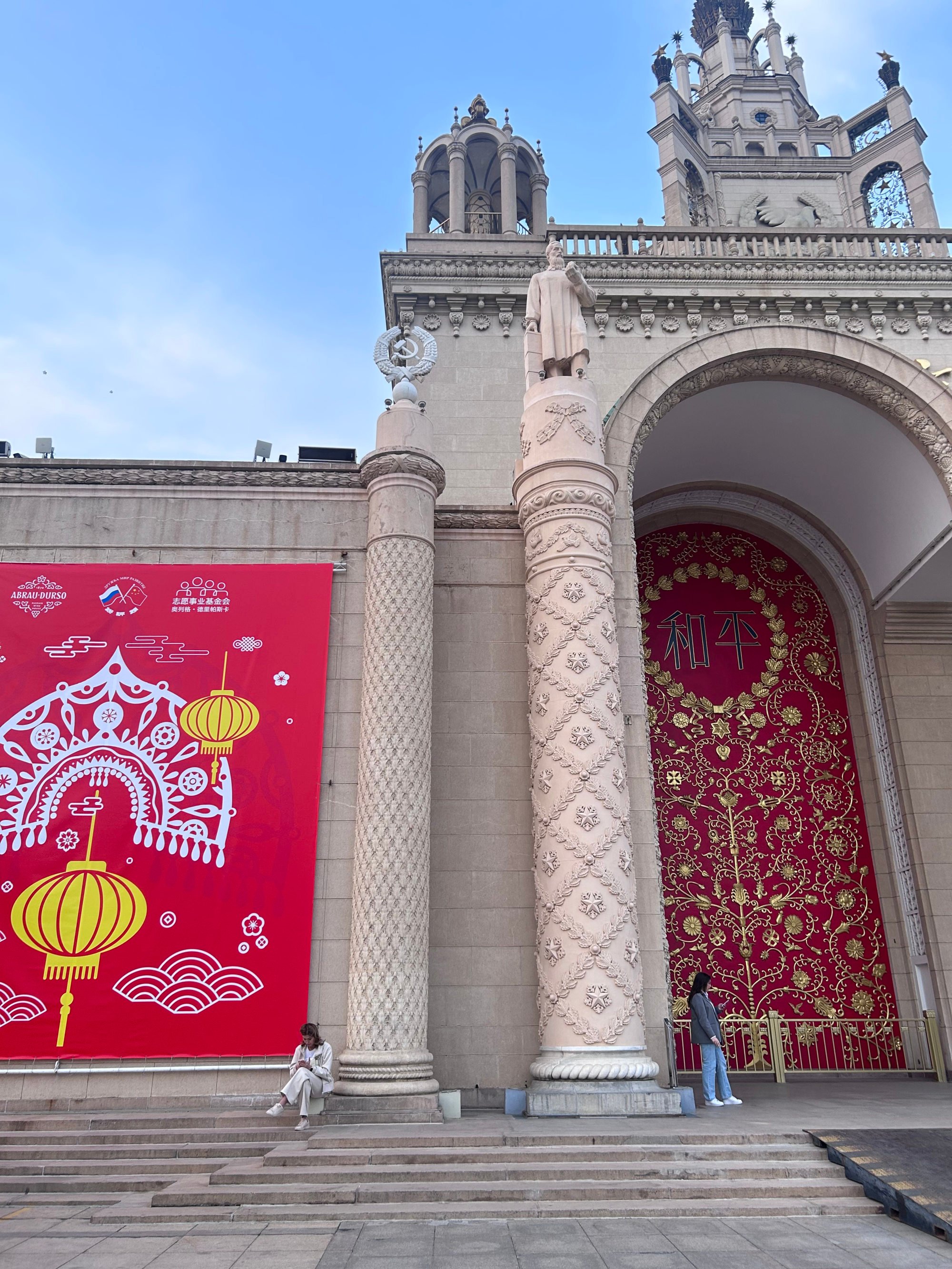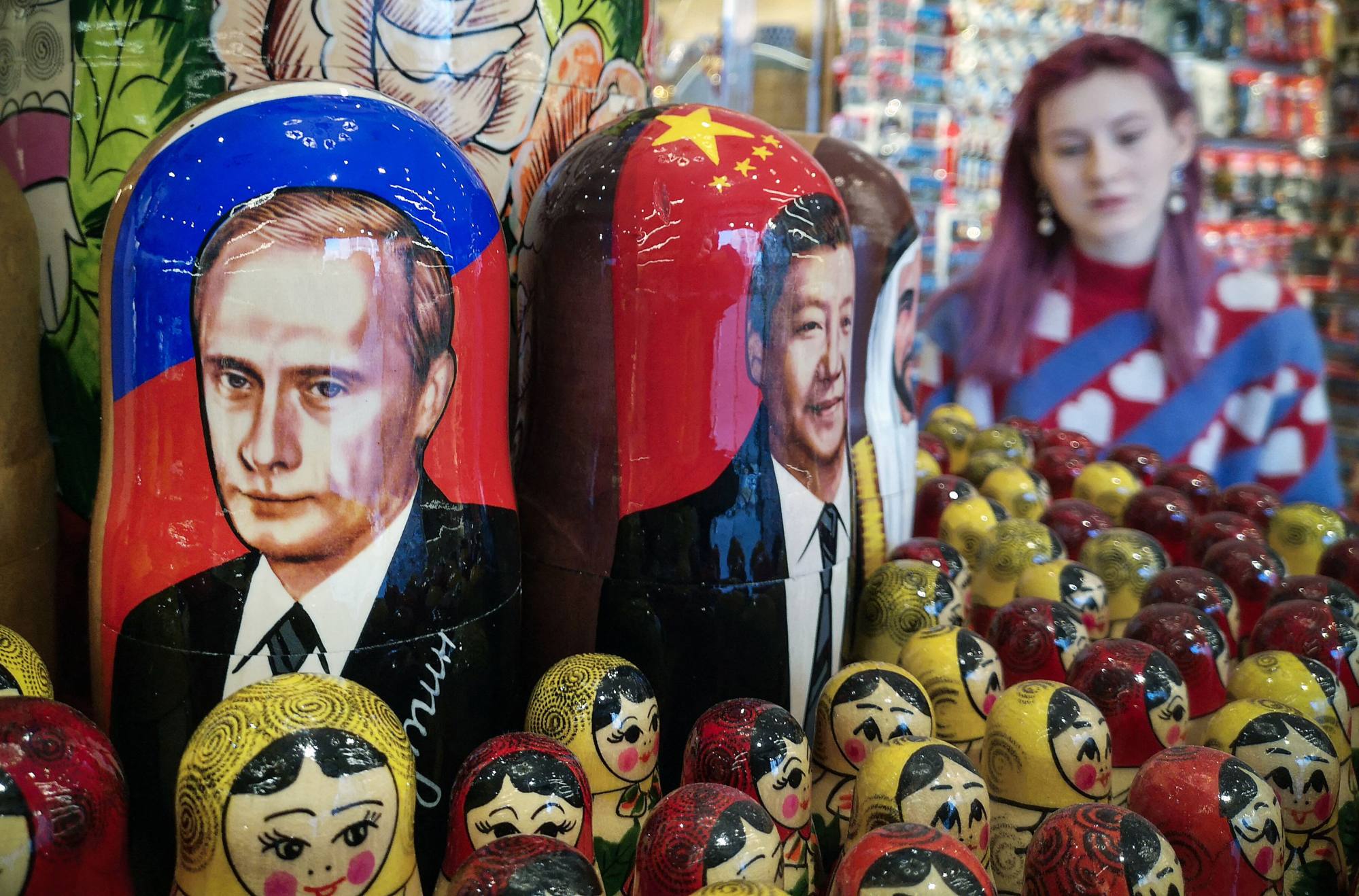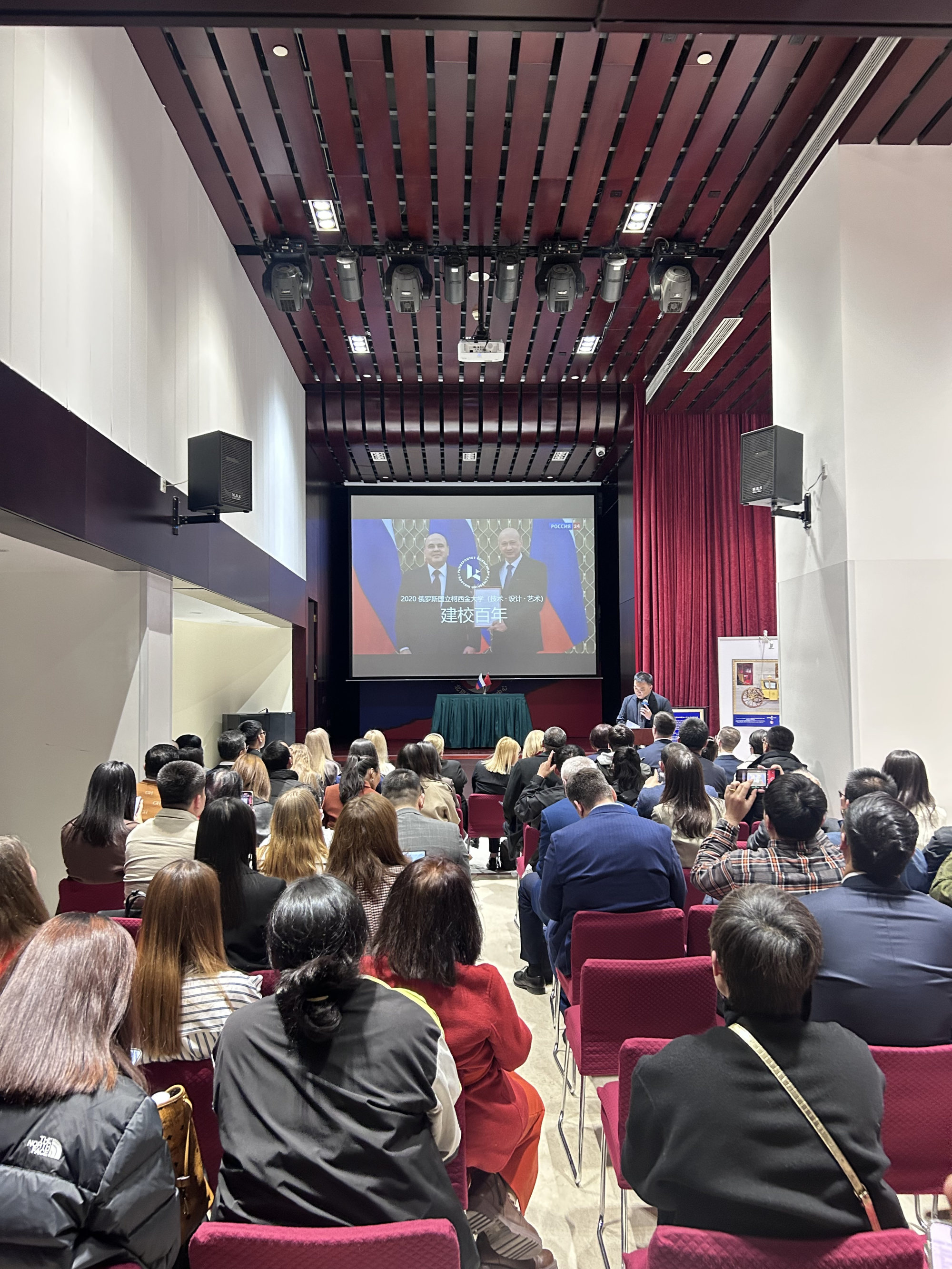
Pancakes and dancing: how Russia and China are trying to take cultural ties to new heights
- Leaders Xi Jinping and Vladimir Putin have agreed that 2024 and 2025 are to be Years of Culture
- Exchanges between people are ‘as important’ as political relations between countries, analyst says
Alongside Russians in traditional costume, they danced and ate pancakes to mark Maslenitsa, an Eastern Slavic folk holiday.
They did so in a Soviet-style exhibition centre from the 1950s – built after a visit by Nikita Khrushchev, the former Soviet leader.

Logistics management student Calvin Yan, 21, was among those embracing the festival.
He said he became interested in Russian culture as a 15-year-old after seeing The Dawns Here Are Quiet, a film based on Boris Vasilyev’s novel about a group of women soldiers in World War II.
“I was immediately attracted by the song ‘Katyusha’ and the sense of strength it delivered,” Yan said. “The more I learn about Russia, the more I can feel the strength – from its history to its literature to its music.”
More than 1,000 locals attended the Maslenitsa celebration, organised by the semi-official Russian-Chinese Committee for Friendship, Peace and Development.

Yang Cheng, executive president of the Shanghai Academy of Global Governance and Area Studies, said while there was plenty of interaction between the nations’ governments, that was not the case for their people.
“Cultural exchange is more about people-to-people relations, which don’t fully dovetail with the so-called hot politics between the two countries,” Yang said. “That’s why it’s worthwhile to further strengthen cultural exchanges.”
He said that by putting the emphasis on cultural bonds, it “moves the focus of bilateral ties from high-level politics, including the political or security issues, down to interactions between people”.
“That’s actually as important as the [political] relationship between the countries.”
Yang said it could also help reduce misunderstandings given the cultural and historical differences between China and Russia. People “naturally have distinct perspectives on certain issues – for example on history, the concept of territory and the idea of the international order”, he added.
‘Palpable affinity’: banned in the West, Russian movies find fans in China
Another student at the Maslenitsa celebration said that most Chinese, especially young people, had stereotyped views about Russia.
“Many of my friends simply know that Russia is a huge country,” said Bean Chen, who is studying international relations in Beijing.
“But I think there are more aspects for us to know – for example, the diverse cultures, different ethnic groups, renowned literature and the world’s leading art.”
Chen said he liked to watch online videos of Lezginka, a traditional Caucasian dance known for its fast pace.
That includes the Cannes Film Festival saying it would no longer “welcome official Russian delegations” nor accept the presence of anyone linked to Moscow, while the doors of institutions such as New York’s Metropolitan Opera have largely been closed to Russian performers.
That has brought some of Russia’s top performers to the country. St Petersburg’s Mariinsky Theatre Symphony Orchestra, led by Russia’s best-known conductor Valery Gergiev, and the Bolshoi Ballet both toured China last year.
An exhibition of realist painter Ilya Repin’s works to mark the 180th anniversary of his birth is also planned for the National Museum of China in Beijing.
Putin signed the Years of Culture decree in January, “to further develop Russia-China ties and expand bilateral relations in the field of culture”.
A Russian committee has been tasked with facilitating cultural programmes with China, and according to state news agency Sputnik, the culture ministry has floated plans to attract Chinese filmmakers to Russia.
An opening ceremony for the Years of Culture will be held in Beijing next month, according to the office of Tatyana Golikova, Russia’s deputy prime minister.
More than 230 events are planned – from music and theatre to museum exchanges and film – across 51 cities in China and 38 Russian cities.
“Cooperation with China is among the most important areas of our foreign policy,” Golikova told Russian officials at an April 11 meeting, according to a government statement. “I have no doubt that the Years of Culture will deepen cultural cooperation, expand ties between relevant institutions of our countries, and open up new promising areas of cooperation.”
Moscow also wants more young Chinese to choose Russia – instead of Europe or the United States – for their university studies.
Russian universities have set up partnerships with their Chinese counterparts in areas ranging from the arts to physics, medicine, astronomy and technology.
Earlier this month, a group of more than 250 Chinese students – the first intake since the pandemic – began a Russian-language course at Far East Federal University in Vladivostok. After four months of study they will sit exams to enter universities in Russia.
Some 40,000 Chinese are currently studying in Russia, while there are more than 12,000 Russian students in China. Moscow will offer 1,000 scholarships both this year and next for Chinese students.
A delegation from 17 Russian universities visited schools and colleges in Beijing, Henan, Shanxi and Chongqing last month seeking to boost educational exchanges.
At a college fair at the Russian Cultural Centre in Beijing, the university representatives promoted their enrolment plans, campuses and facilities.

Among them was Moscow’s Skolkovo Institute of Science and Technology, or Skoltech, which opened in 2011 as part of a partnership with the Massachusetts Institute of Technology. Skoltech turned its attention to China last year after MIT ended the partnership in protest over Russia’s invasion of Ukraine.
Skoltech is trying to lure Chinese students with classes in English, free tuition, health insurance and monthly scholarships of 40,000-50,000 roubles (US$437-US$546).
“Many of our students were from Europe, but because of the war, now we are looking to extend cooperation with countries in Asia and Africa,” Skoltech representative Elena Smolkova said.
Closer political and economic ties are driving interest in studying in Russia, according to Wang Wei, founder of admissions consultancy Kunshu International.
“Many Chinese companies – in fields ranging from energy to agriculture – have rushed into Russia because of the sanctions imposed by the West,” Wang said. “Chinese students with a Russian education background would be the perfect candidates for these jobs.”
“Many parents are very worried, and I think if they’re choosing between Russia and a country with similar living costs, like Malaysia … many families may choose the latter.”
However Li Bingmei, director of the A.S. Pushkin Centre of Russian Language in Beijing, said the attack would not deter Chinese students.
“In the short run, it is a big shock to everyone,” she said. “But … those who want to go will go anyway.”

